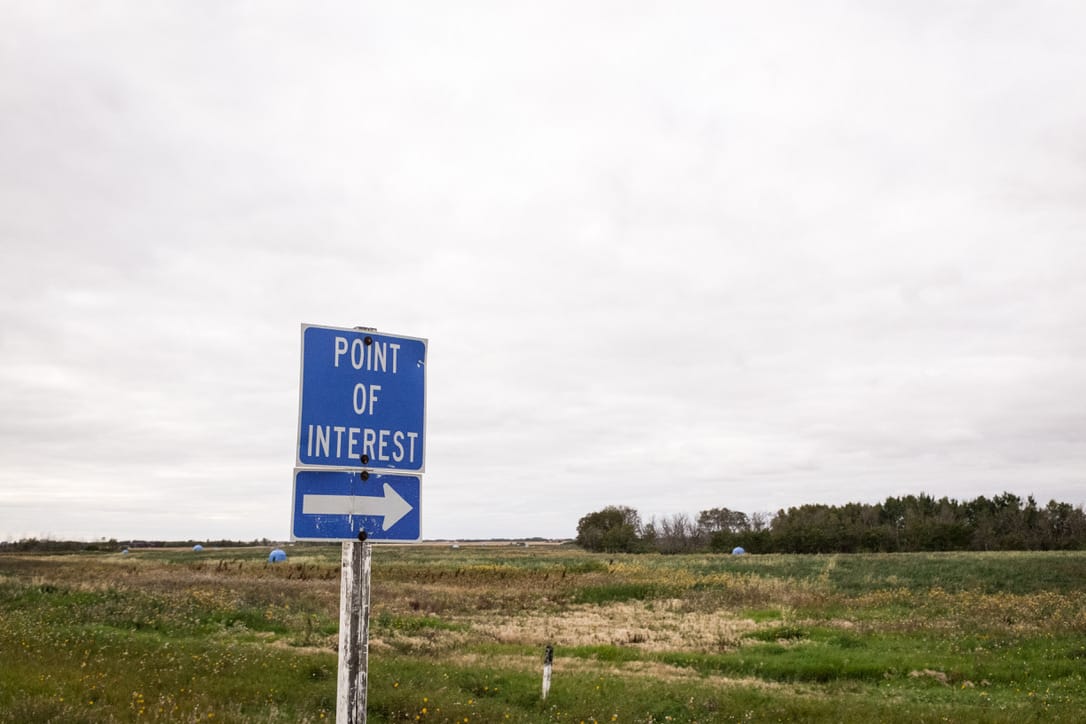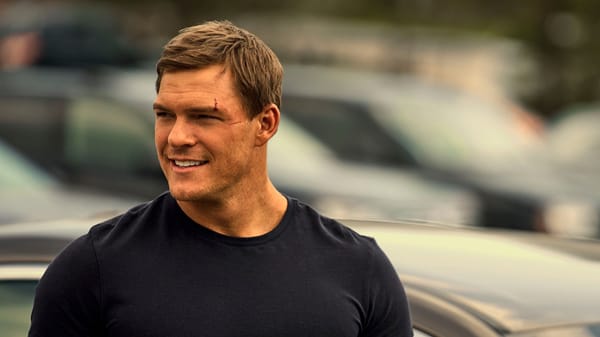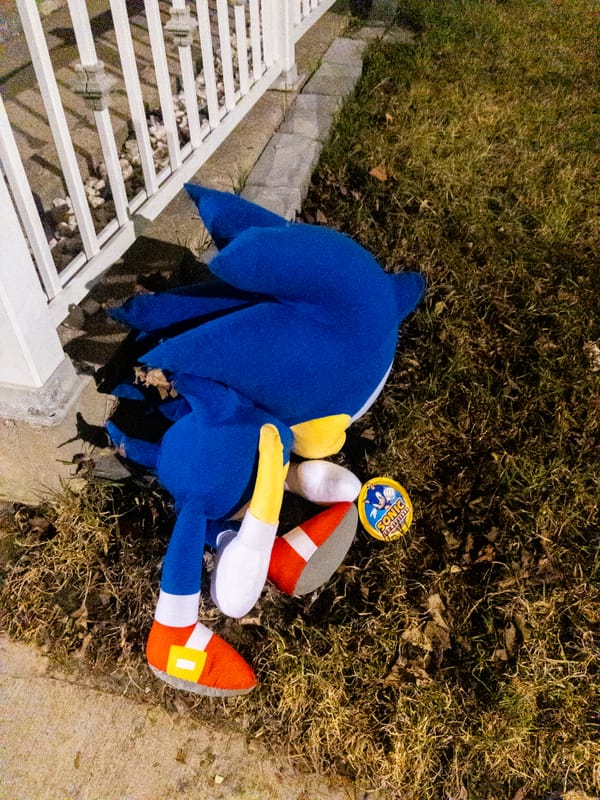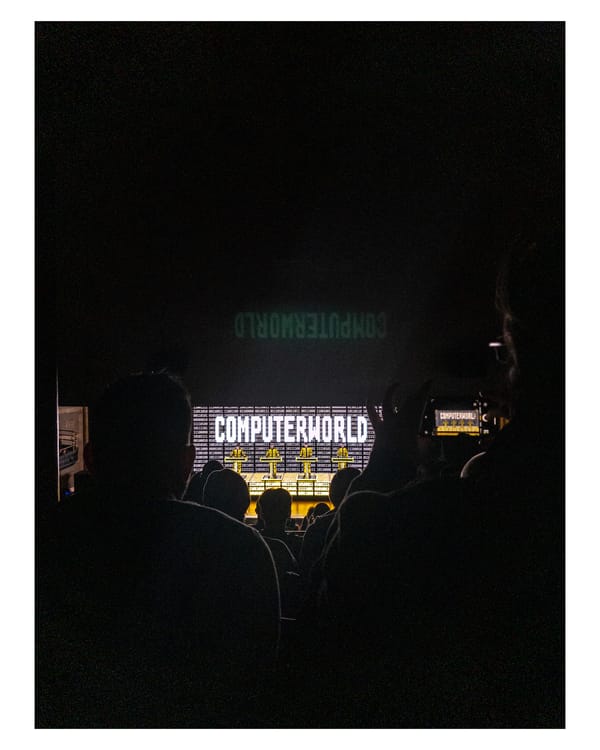Everything dies, that's a fact

I’ve been thinking a lot about dads lately, which I’m sure is a by-product of moving through the rough draft and obsessive meandering of book writing (The Dad Rock That Made me a Woman, available….). Someone was asking me this weekend how I write, how I made it through the draft of 1.75 books in the last however many months/years it’s been, and my best answer was that I paid for YouTube Premium.
I’ve been making playlists as far back as my memory runs. Mix tapes and then CDs and briefly Minidiscs before it all became data on an iPod somewhere. My memory is a kind of mercurial beast, often absent and difficult and a challenge to control, but I will always recall the world that lives around the music that carried me through all the good and bad days I don’t remember. It’s not complete, there are days and months and names missing in there, but I have the songs that became lifelines to the days I don’t fully recall.
People know I’m writing a book about dad rock, so they ask me questions about the big names in the Dad Rock extended universe. Questions that already have an expected answer. There’s the assumption of the idea of this genre, the way things are filed away in taxonomies as we make lists and labels for all things. Dad rock conjures a picture, the idea of a dad blasting darts and the Steve Miller Band under a perfect amber skyline. He’s fixing a sports car that will never run but doesn’t need to, he’s fixing the idea of who he always wanted to be. He’s drinking Coors in a glass bottle that captures the sun as it sets on the day. He owes a guy five bucks, he’s got a bad knee. He’s handsome, but only just, disheveled but only just. Perfectly imperfect.
This isn’t real, but we want it to be. Dad rock is an easy joke, like yacht rock or folk punk. Less a genre or a collection than an easy punch line.
A few months ago I was asked to talk with a class of journalism students about the work I find myself in. Whenever I do these talks I get defensive about my own lack of qualifications. I didn’t go to journalism school, or really any kind of school that permits me walking down a tile hallway to talk about the craft and cruft of this job. I am most of a high school graduate. I am a journeyman Glazier who finished trade school in 2002. That’s the extent of my education on paper. I get defensive because I feel ashamed, but only a little, about who I am in this world in contrast to a lot of peers and the folks who I look up to. The people I imagine to be worthy of standing in these rooms and leading these conversations. I get defensive which triggers my self-deprecating response. I poke holes into my credibility, point to my own self-perceived failures and setbacks.
People won’t try to hurt you if they see you’re already wounded.
It took me a while to consider what this says about my own dad. Who is like me, or rather I’m like him.
On YouTube Premium I’m making playlists of videos that help me write. I don’t often listen to music when I write unless it’s something I know really well or is thematically tied to the work. Songs I know will elicit some kind of emotional response or trigger. It’s like that scene in the movie Constantine – an overlooked gem of the pre-MCU comic book movie landscape where you could put Tilda Swinton and Gavin Rossdale in the same movie – where Keanu Reeves explains that water is a universal conduit through to the truth of all things. You just need to find your way through to the truth of things.
We were a Dwight Yoakam household because of my mother. She calls him Dwight, with a little playful twang on her voice when she draws out his name. We had Dwight and through him we had Randy Travis, the Nitty Gritty Dirt Band and all manner of late 80s and early 90s country albums that skirted around the outgoing tide of pop country. We had, like I’m sure a lot of households did, Copperhead Road by Steve Earle. An album I listened to in the early afternoon with headphones on, heard the pounding rhythm of the lead title track and Steve Earle’s voice like aged dynamite. Always on the edge of destruction.
My YouTube algorithm decided to remind me of a memory I didn’t know I needed to reclaim, a video of Justin Townes Earle covering Springsteen’s “Atlantic City” and for a day all I could do was play, and replay and be reminded of how perfectly imperfect the song becomes through him. How he changes the poetry in the work with new inflections, his voice like aged dynamite. Just like his dad's. A weariness and understanding of the world that moves through him despite his young age. The way he slaps the low E to create a kind of discordant beat, as his fingers move through cords on an old guitar. I wonder if he learned this from his dad, a trick you don’t learn in a book or a school that gives you means to move through the world with your own rhythm.
Eventually I stop asking the video to play just once more, it moves to a memory I don’t have: a cover of Paul Simon’s “Graceland” and again the song feels brand new in the voice of someone who feels and is connecting to something in the song that I never knew was ever there. Justin Townes Earle drawing different conclusions from all the things we believe we could be so sure of.
His dad fought with addiction before getting sober in the 90s, right around when I would have found my parents copy of Copperhead Road amongst the CDs organized in my parents stereo cabinet. The one handmade by my dad from painted door mouldings and bronze glass. Memories of the cabinet and my dad slumped next to late in the heart of nights when he was too tired from work and the weight of all things to do anything but fall asleep in an overstuff green pillow with headphones on and a book bent at the spine resting on his chest.
I followed my dad into this life the same as Justin Townes Earle followed his. And I’m sure he worried about the dangerous pitfalls of it all.
Steve Earle spoke with his son for the last time the day he died of an accidental overdose. In a piece in the Irish Times, he recalls
'”I said, ‘Do not make me bury you’,” the elder Earle recalled in an interview. “And he said, ‘I won’t’.”
He talks about how his son did what he did, which included using drugs from a young age, struggling with alcoholism too. The younger Earle was obsessed with Kurt Cobain and the folk hero’s who surrounded his father world. A feeling that is easily relatable as someone who grew up similarly obsessed with Cobain, the allure of dangerous things and the world of my dad.
You can hear the waves of these obsessions in Justin Townes Earle’s work. The obsession and the darkness of this life. I know I’m talking about songs he covered here, but his originals are as haunting and beautiful as anything you will find on the shelves of our memories. There are artists in this life who turn instruments and voice into something wholly their own, as if the blood in their veins is flowing out through nylon strings and into microphones, rhythm driven by the desire of a dangerous life. Justin Townes Earle plays like he invented the guitar, sings like a challenge to the devil.
I think about dads, and the lives they impart to their children. I think about how I swipe at my own leg to disarm the skills I learned from working with my dad and peering into his world for long hours on long days in the glass shop over the many years we worked the trade together. The talks over coffee at his kitchen counter, the careful wisdom and the gentle guidance. I think about dads that just want their children to find some way to live. Steve Earle telling his son that he doesn’t want to bury him. The gentle grace he finds to describe all the ways his son was an endless well of talent who never felt like he measured up. The hardest critique flows from the heart. I can only imagine how hard it would be to live up to a last name that walks through the door before you do.
I don’t treat dad rock as a joke in the book, dad rock is something that means more to me than an easy punchline to disarm any potential shortcomings, but I think I set out with those intentions. That I wouldn't let myself take this seriously, and the things that surprised me the most moving through the endless word count was how much of my life has been guided by lessons learned from my dad, and the music of dads who raised me.
We are all of us products of a dad somewhere in the world, it never really matters if it's a biological or a chosen one. Dad rock as the product of the people who came before and fought to raise us as best they could. Dads that just want happiness for the people they care for, that don't care who or what you are, they just care that you're still here to pick up the phone one more time. Dad that don't want to bury us before our time has come to be put in the ground.




